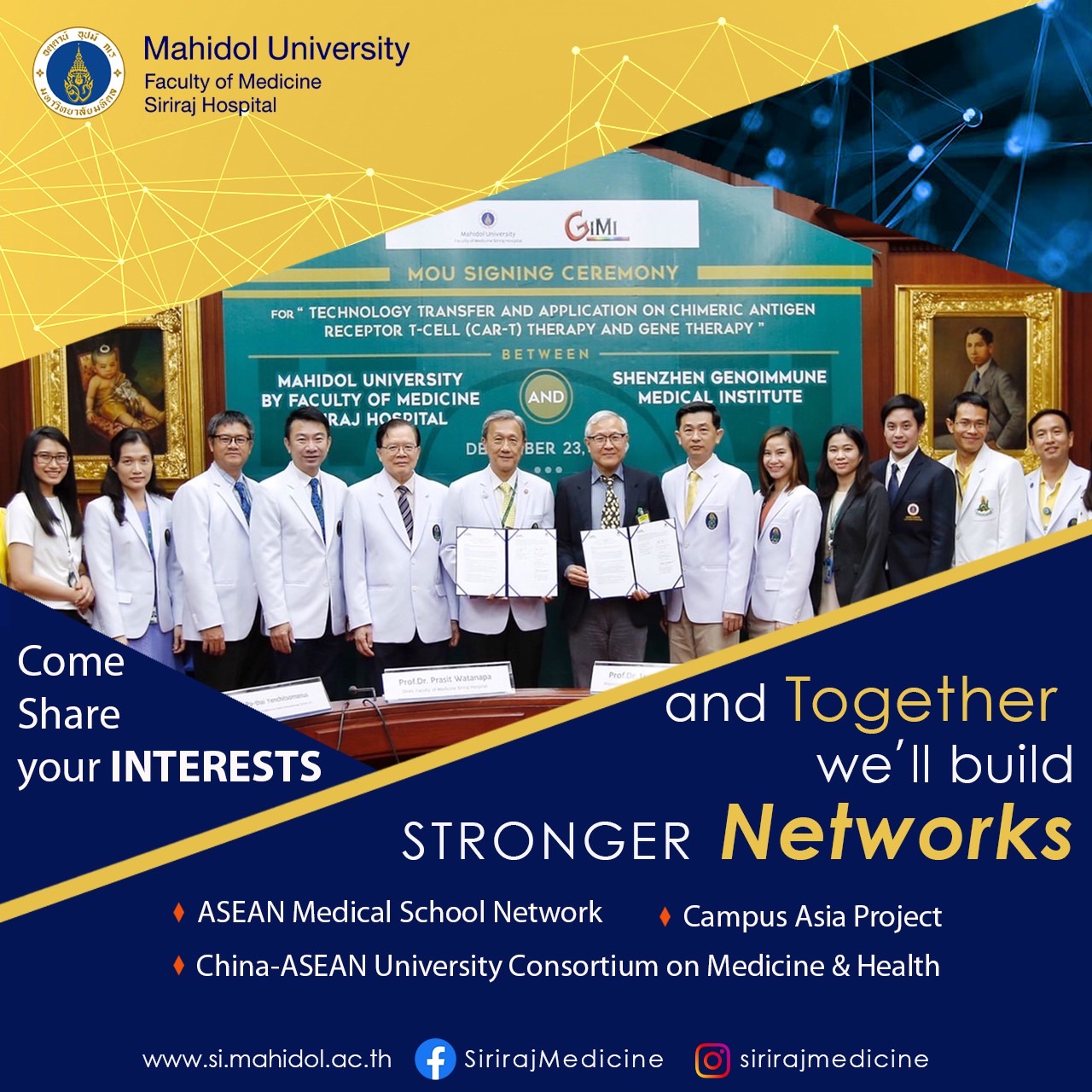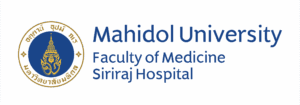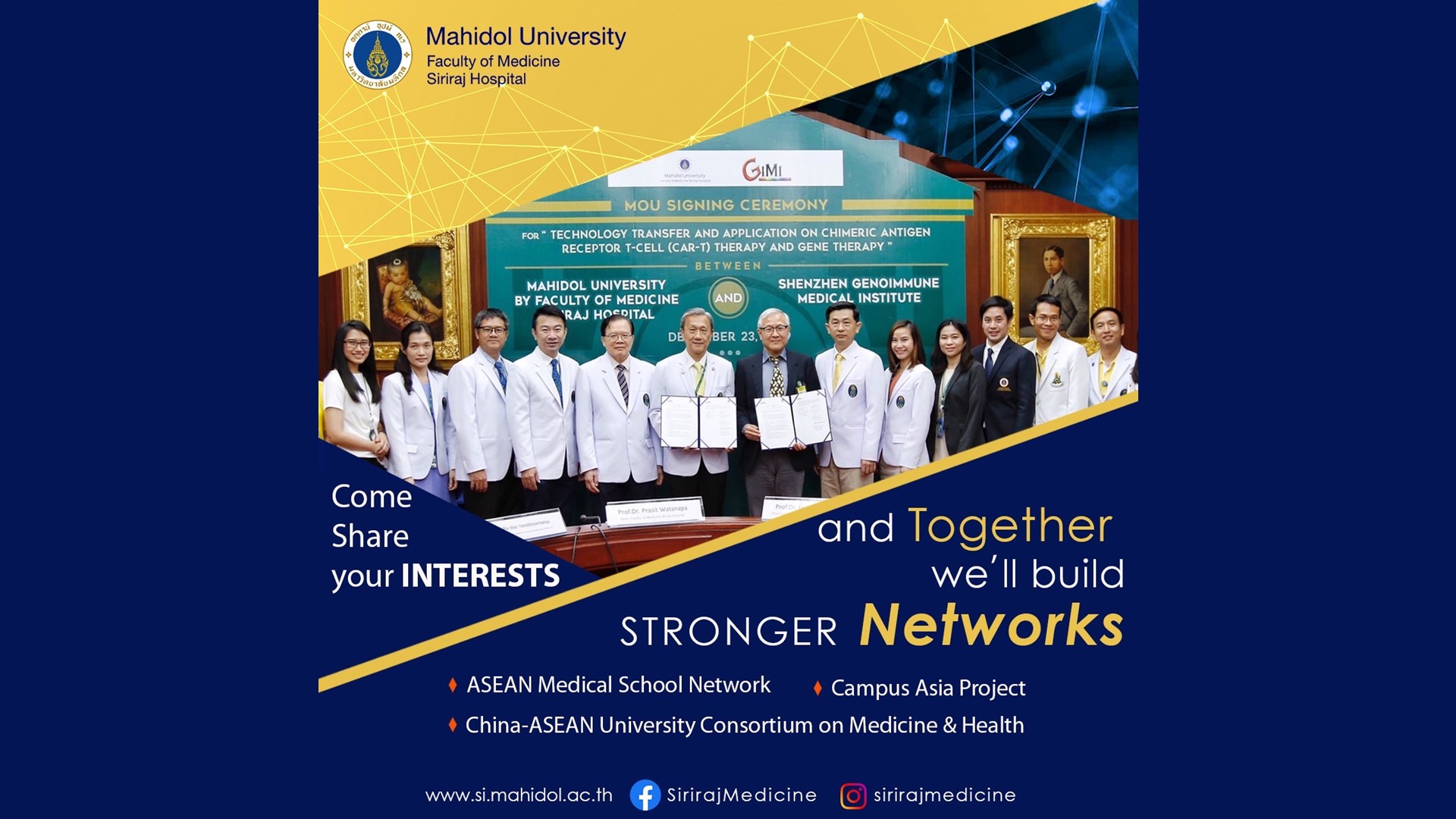Our network
The world nowadays has become borderless owing to the technologies and networks that connect people together. At Siriraj, we have established a number of strong networks to help us grow our knowledge and skills, which we then share with our partners so that we all can move forward together. Inter-institutional networks and topic-specific networks are two types of networks that complement each other. The following are some examples of those networks and collaborations that we have.
1. Inter-Institutional Networks
• ASEAN Medical School Network (AMSN), established in 2012, comprises 23 medical schools in the ASEAN region.
• China-ASEAN University Consortium on Medicine and Health, incorporates 21 medical schools from China into AMSN.
• Campus Asia Project brings together 8 leading medical schools from China, Japan, South Korea, and Thailand. Peking University, Shanghai Jiao Tong University, Tianjin University of TCM, Guandong Pharmaceutical University, Osaka University, and Yonsei University are joining hands toward phase 2 of the project.
These networks host regular annual meetings as well as many online meetings or webinar sessions where experts come and meet to learn from one another on many topics. Students can learn similarities and diversity of various subjects, broadening their perspectives and bringing them closer to becoming global doctors.
2. Topic-Specific Networks
• Many Bilateral Collaborations have been established to leverage the standard of treatments in many fields e.g. Mahidol-UCLA Transcatheter Aortic Valve Implantation (TAVI), Siriraj-University of Toulouse, France, collaboration in Neuroradiology, Siriraj-Tan Tock Seng Hospital, Singapore, Nursing collaboration, Siriraj-Nagoya University, Japan, collaboration in Geriatric Medicine, Siriraj-Kurachiki University, Japan, Gynecologic Laparoscopic Surgery Team, and so on.
• Large global networks focusing on the development of better performances in medicine have been identified. Here are a few samples you might want to take a look!
: Stem Cell Research; the network includes University of Cologne, German, National Institutes of Health, Bethesda, University of Washington, Seattle, USA., Centre for stem cell research, University of Sheffield, UK, RIKEN center for developmental biology, Japan, Weizman Institute of Sciences, Israel.
: Cancer collaboration; includes MD Anderson Cancer Center, University of Florida, USA, Kumamoto University, National Cancer Center Japan, King’s College, University of Manchester, UK, Shenzhen Genoimmune Medical Institute, China
: Infectious Diseases collaboration on HIV, Dengue virus, Malaria, Tuberculosis, etc. The network includes UCLA, Emory Vaccine Center, USA, University of British Columbia, Canada, Yong Loo Lin School of Medicine, NUS, Singapore, University Medical Center Groningen, Netherlands, Oxford University, UK.
: Diabetes and Obesity Group; There are Joslin Diabetes Center, Harvard Medical School, USA, Research Unit of Diabetes and Endocrine Diseases, Italy, Wakayama Medical University, Japan, University of Glasgow, Leicester Diabetes Center, University of Leicester, UK in the network.
: Gene Therapy & Molecular Genetics group comprises the Genome Institute of Singapore, Memorial Sloan-Kettering Cancer Center, New York, UCLA, Swedish University of Agricultural Sciences, Sweden.
: Herbal Medicine; the network includes Shandong University of Traditional Chinese Medicine, Kunming Institute of Botany Chinese Academy of Sciences, Nanjing Drum Tower Hospital, the Affiliated Hospital of Nanjing University Medical School, China, Wonkwang University, Kyung Hee University, Korea.
With time, the networks continue to grow and pay off the benefits. Come share your interest and together we’ll build stronger networks.




